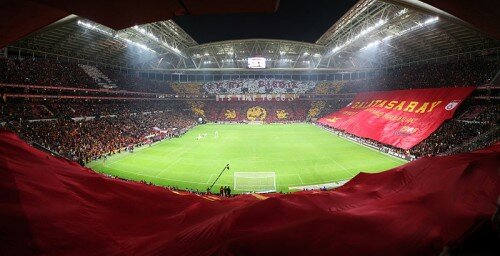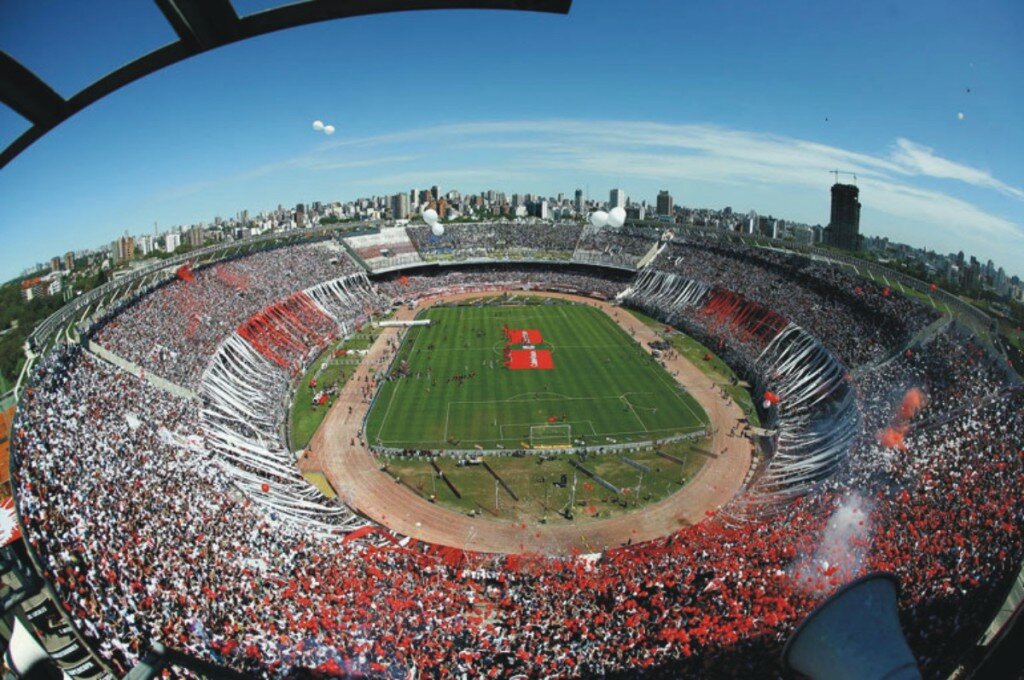Sepp Blatter started work on the latest chapter of his memoirs (working title: The Great Dictator) when he pulled Qatar’s name out of the envelope and revealed it to a stunned global audience. He was delighted to be spreading the love to new frontiers, but that was December 2010. Now he’s reportedly having second thoughts. Surprise, surprise.
The concerns voiced by everyone about the feasibility of a World Cup in Qatar focused on the many obvious challenges – the lack of football infrastructure, the size of the country, human rights, and the furnace like conditions that Qatar endures each and every summer. All valid points, of course. What fan in their right mind what want to hand over thousands of pounds voluntarily to spend a couple of weeks in this hellish landscape? (answer: the England Band).
Blatter might argue that there were plenty of concerns before the World Cup in South Africa, and that tournament was ultimately a success in terms of delivery. The stadiums were completed on time, logistically it held up, and the teams had the right facilities. But, only FIFA would host a major sporting event in South Africa and implement a European-level pricing structure, making tickets prohibitively expensive for the majority of the host nation’s population.
The sight of swathes of empty seats during many fixtures of the 2010 tournament was impossible to dress up as anything other than a huge embarrassment. This is the World Cup, supposedly the biggest and best football show on the plant, so why is no one in the stadium watching it?
Don’t worry, said Sepp, we’ll sort it out. And sort it he did, by sending the tournament to a country with a population of 1.8 million – that’s 1.4 million fewer people than the 3.3 million who attended matches in South Africa. Genius!
But, the World Cup is about more than the fans at the stadium; it is about the global audience that FIFA’s corporate sponsors want to hawk their products to. Yes, they need some people to go to the games, but the reality is that TV rights and advertising revenues have become far more lucrative than match tickets.
This is all a shame, because it was as recent as 2006 that Germany was highlighting what the tournament can offer for both parties – host and parasite (FIFA). Fans came back from Germany singing the praises of the organisers (they certainly weren’t singing the praises of the England team). There was a sense that the host cities really wanted the fans there.
Of course, it helps when the country has a well established and thriving football culture in place. But, you can’t engineer that. It’s like when you’re planning to meet up with friends and someone says ‘let’s have a big night’. There is nothing more certain to kill off an evening’s fun than excessive planning. You might as well cancel there and then. And with that bullet proof analogy in place, it doesn’t matter how much Qatar tries to create an authentic football vibe for fans – burgers made of strange ‘meat’, gassy beer, and over zealous policing – it will still be a rubbish World Cup.

Galatasaray’s Stadium would be an excellent World Cup venue
This might be sounding like a crusade against the unknown – it is not intended to be. It certainly shouldn’t be the case that only the larger ‘major league’ nations in Western Europe are deemed fit to host the tournament. There are still plenty of cool places to host a World Cup. I’m actually really excited about the tournament in Russia, but how good would it be to have one in Argentina again? Now that really would be a spectacle, but it’s not going to happen, not for a very, very long time. There’s no way they could afford it, and the same applies to Turkey, another nation overflowing with football culture, but lacking in resource.
If FIFA didn’t insist on sucking money out of the tournament and pumping it back to poverty stricken Zurich, it might actually be a positive thing for football mad nations with economic problems to host it. Instead, it’s becoming a prestige symbol for cash rich nations with money to spend on vanity projects. As the recent compromise on the 2020 European Championships has shown, even the previously comfortable European economies aren’t in a fit state to host major tournaments. But, why, if FIFA and UEFA are so cash rich? Why can’t the tournament be rebalanced a bit to make it more appealing for the host nation?
Four weeks of extra tourism is great, but it’s hardly going to pay for the all the investment in stadiums and infrastructure that is typically needed to host a major tournament. FIFA claims to be on a global mission for the greater good: “The world is a place rich in natural beauty and cultural diversity, but also one where many are still deprived of their basic rights. FIFA now has an even greater responsibility to reach out and touch the world, using football as a symbol of hope and integration.”
The evidence suggests otherwise. South Africa spent $4.6billion in preparation for the tournament, but the tournament only brought in $519.6 million in tourism. That’s a bit of a deficit. Over at FIFA, however, they were diving into cash filled swimming pools, having made about $3.4billion in advertising and marketing rights. No Government facing difficult economic challenges is going to touch that deal with a very long barge pole, with good reason. However you dress it up, a loss-making vanity project is pretty hard to justify in the context of rising unemployment and welfare costs. The World Cup could provide some relief, but it doesn’t.
‘Develop the game, touch the world, build a better future’ is a nice strap line, but in the context of the World Cup bidding process it’s just empty rhetoric.



What gets my goat is that FIFA talks about social justice but only picks hosts that are the richest country in the poor continent. Perhaps a slice of that $3.4 billion could have gone towards long-term infrastructure improvements to roads, utilities, and airports rather than white elephant stadiums.